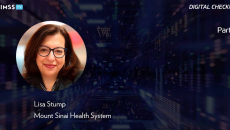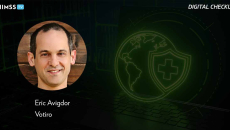Operations
HIMSS25
At HIMSS25, Tamer Baker, healthcare CTO for Zscaler, and Nate Couture, CISO for the University of Vermont Health Network, will discuss zero trust's strategy and how critical it is to facilitate breach recovery and prevention after an attack.
HIMSS25
The cost burden is lowered when rural hospitals share their EHR because the host can bear the cost of things such as infrastructure, security and staffing, says David Winn, vice president for Parkview Community Connect at Parkview Health.
Despite reluctance in the past couple of years, clinician comfort with using AI tools is growing, says Etiometry President and CEO Shane Cooke, citing results of a recent AMA survey.
HIMSS25
Darren Webber and Nathan Licht, principal data analysts at Cedars-Sinai, preview their HIMSS25 talk on how generative AI can enhance chart abstractors’ efficiency and effectiveness, as well as best practices for implementation.
HIMSS25
At HIMSS25, Matt Cybulsky, healthcare AI and product innovation lead at LBMC, says he hopes to spark interest, curiosity and realistic expectations on technology use in healthcare and AI’s effectiveness in real-world clinical settings.
Digital strategy should include an understanding of basic IT infrastructure and the application layer. Applications should be reliable, accessible and secure, says Lisa Stump, Mount Sinai Health System Chief Digital Information Officer.
HIMSS25
Marcee Chmait of Providence Digital Innovation Group, Esther Kim of Mass General Brigham, and Kali Arduini Idhe of Northwestern Medicine highlight what attendees will learn from the HIMSS25 Smart Health Transformation Preconference Forum.
If finalized, the rule aims to improve the safety of patient data at healthcare institutions and addresses a national security topic by protecting data from bad actors who want to disrupt services, says Eric Avigdor, chief product officer of Votiro.
Emilio Goldenhersch, enterprise director at MKThink, discusses tracking the movement, air quality and architectural design of a space to examine its effects on health - and how to apply the tech in first responders' healthcare.
Van Steel, shareholder in LBMC's cybersecurity division, discusses his role at HIMSS Tennessee chapter - and why private healthcare data, including financial information, medications and other personal information, sells for a premium.









